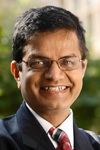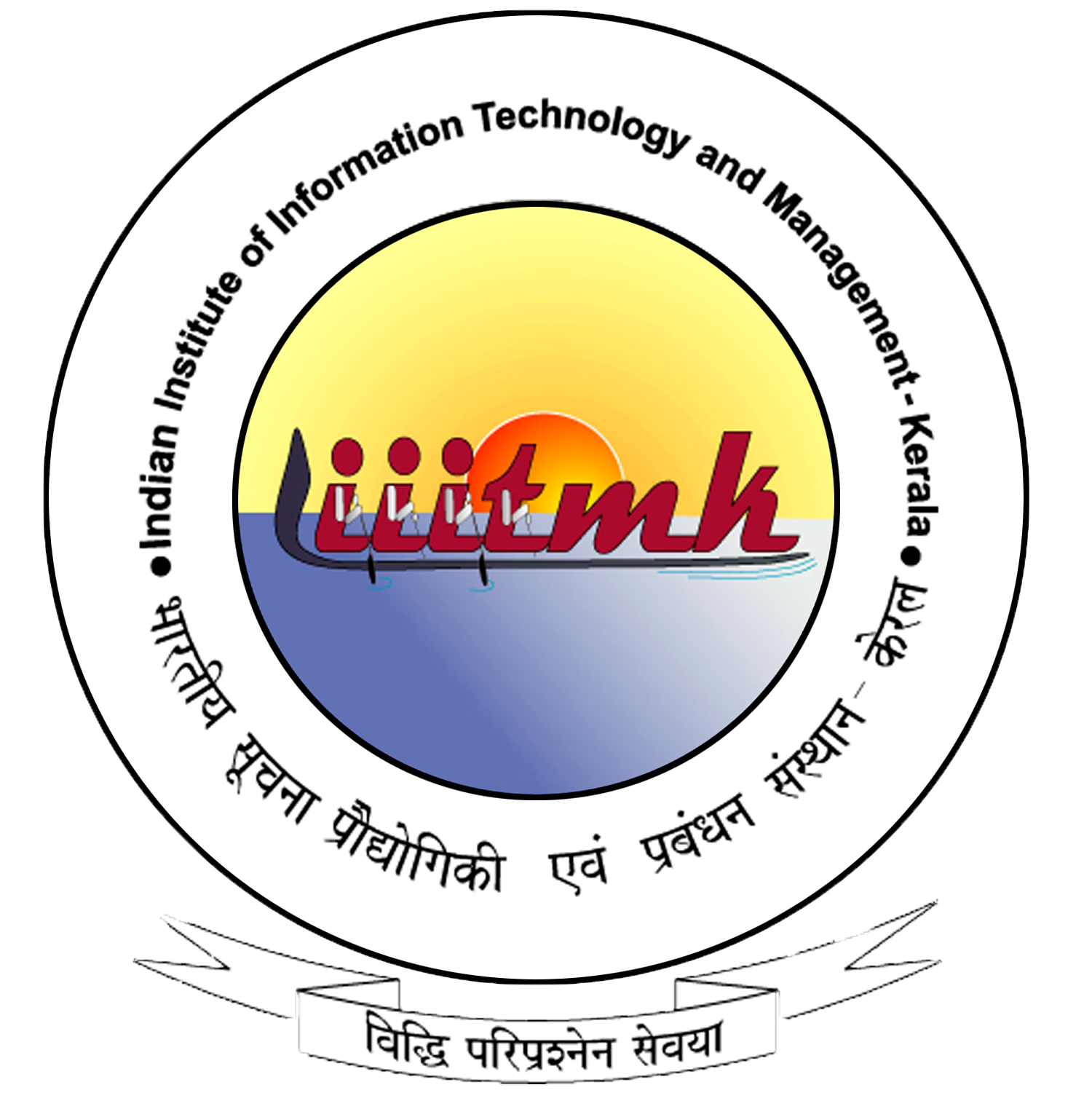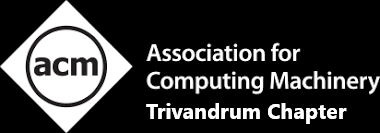Title of Talk: Muscle Fatigue Detection using Infrared Thermography
Biography: Dharma P. Agrawal is the Ohio Board of Regents Distinguished Professor and the founding director for the Center for Distributed and Mobile Computing in the Department of Electrical Engineering and Computing Systems. He has been a faculty member at the ECE Dept., Carnegie Mellon University (on sabbatical leave), N.C. State University, Raleigh and the Wayne State University. His recent research interests include applications of sensor networks in monitoring Parkinson’s disease patients, applications of sensor networks in monitoring fitness of athletes’ personnel wellness, applications of sensor networks in monitoring firefighters physical condition in action, efficient secured communication in Sensor networks, secured group communication in Vehicular Networks, use of Femto cells in LTE technology and interference issues, heterogeneous wireless networks, and resource allocation and security in mesh networks for 4G technology. His recent contribution in the form of a co-authored introductory text book on Wireless and Mobile Computing has been widely accepted throughout the world and third edition has been published. The book has been reprinted both in China and India and translated in to Korean and Chinese languages. His co-authored book on Ad hoc and Sensor Networks, 2nd edition, has been published in spring of 2011. He just authored a new textbook on “Embedded Sensor Systems,” published by Springer. A co-edited book entitled, Encyclopedia on Ad Hoc and Ubiquitous Computing, has been published by the World Scientific and co-authored books entitled Wireless Sensor Networks: Deployment Alternatives and Analytical Modeling, and Innovative Approaches to Spectrum Selection, Sensing, On-Demand Medium Access in Heterogeneous Multihop Networks, and Sharing in Cognitive Radio Networks have been published by Lambert Academic.
He is a founding Editorial Board Member, International Journal on Distributed Sensor Networks, International Journal of Ad Hoc and Ubiquitous Computing (IJAHUC), International Journal of Ad Hoc & Sensor Wireless Networks and the Journal of Information Assurance and Security (JIAS). He has served as an editor of the IEEE Computer magazine, the Journal of Parallel and Distributed Systems, the IEEE Transactions on Computers and the International Journal of High Speed Computing. He has been the Program Chair and General Chair for numerous international conferences and meetings. He has received numerous certificates from the IEEE Computer Society. He was awarded a Third Millennium Medal, by the IEEE for his outstanding contributions. He has delivered keynote speech at 43 different international conferences. He has published over 691 papers, given 67 different tutorials and extensive training courses in various conferences in USA, and numerous institutions in Taiwan, Korea, Jordan, UAE, Malaysia, and India in the areas of Ad hoc and Sensor Networks and Mesh Networks. He has graduated 76 PhDs and 69 MS students. He has been named as an ISI Highly Cited Researcher, is a Fellow of the IEEE, the ACM, the AAAS and the World Innovation Foundation, and a recent recipient of 2008 IEEE CS Harry Goode Award. In June 2011, he was selected as the best Mentor for Doctoral Students at the University of Cincinnati. Recently, he has been named a Charter Fellow of the National Academy of Inventors.
Abstract: Wireless Sensor Networks (WSNs) have been primarily introduced for defense applications, using large number of wireless sensor nodes (SNs) and a Base Station (BS) that collects information from all SNs. Secured communication in a WSN is an important aspect ignored by researchers and an innovative technique of distributing keys for shared secret key-based communication is described and various characteristics including resiliency are outlined. This presentation first introduces basics of sensor networks and the covers the problem of muscle fatigue which affects people from all walks of life. Muscle fatigue can be defined as a reversible decrease in the contractile strength of the muscle(s) that occurs after long lasting or repetitive muscular activity. Muscle fatigue, when not diagnosed and treated in the early stages, leads to muscle injuries which tend to have long-lasting effects. The current technologies which are used to detect and treat muscle fatigue are highly invasive and often require the personnel to visit specialized clinics. A non-invasive, cost-efficient method for detecting muscle fatigue is crucial. Infrared thermography is a non-radiating and contact-free technology which measures the surface temperature of objects. Infrared thermography can be an effective non-invasive technology which can be used to detect muscle fatigue. The thermal images of the test subjects are taken before and after the exercise routine. The changes in temperature values of the regions of interest have been tabulated and the results indicate a clear correlation between muscle fatigue and increase in the measured temperature. We conclude this talk with final remarks.
Speaker: Dr. Vipin Chaudhary, SUNY Empire Innovation Professor, SUNY Buffalo, USA
Title of Talk: Four Decades of HPC: Architectures, Programming Environments, Systems, and Applications
Biography: A veteran of High Performance Computing (HPC), Dr. Chaudhary has been actively participating in the science, business, government, and technology innovation frontiers of HPC for over three decades. His contributions range from heading research laboratories and holding executive management positions, to starting new technology ventures. Vipin Chaudhary is the SUNY Empire Innovation Professor of Computer Science and Engineering at SUNY Buffalo, and the co-founder of the Center for Computational and Data-Enabled Science and Engineering. He is currently on an IPA appointment at the National Science Foundation where he is serving as a Program Director in the NSF Office of Advanced Cyberinfrastructure. He cofounded Scalable Informatics, a leading provider of pragmatic, high performance software-defined storage and compute solutions to a wide range of markets, from financial and scientific computing to research and big data analytics. From 2010 to 2013, Dr. Chaudhary was the Chief Executive Officer of Computational Research Laboratories (CRL) where he grew the company globally to be an HPC cloud and solutions leader before selling it to Tata Consulting Services. Prior to this, as Senior Director of Advanced Development at Cradle Technologies, Inc., he was responsible for advanced programming tools for multi-processor chips. He was also the Chief Architect at Corio Inc., which had a successful IPO in July 2000 and later sold to IBM. Dr. Chaudhary received his Ph.D. from The University of Texas at Austin and his B.Tech. from the Indian Institute of Technology at Kharagpur where he was the President’s gold medalist. His current research interests are in High Performance Computing; Big Data; Computer Assisted Diagnosis and Interventions; and Quantum Computing. .
Abstract: High performance computing (HPC) impacts every aspect of scientific endeavor. In this talk I will cover various HPC problems and applications over four decades from my journey in academia and industry. These include new multi-(many) core processors and interconnection networks, parallelizing compilers for non-uniform dependences, OpenMP for heterogeneous processors, Virtual Machines for HPC, multi-threaded embedded operating systems, accelerating bioinformatics algorithms using FPGAs and GPUs, hyper-converged computer systems and variable redundancy for flash storage arrays, and machine learning. I will describe applications of HPC in surgery and medical diagnosis and the future challenges in HPC.
Speaker: Prof. Xavier Fernando, Director, Ryerson Communications Lab, Electrical and Computer Engineering, Ryerson University, Toronto, Canada
Title of Talk: Machine Learning and Visible Light Communications for Autonomous and Electric Vehicles
Biography: Xavier Fernando is a Professor at the Dept. of Electrical and Computer Engineering, Ryerson University, Toronto, Canada. He has (co-)authored over 200 research articles, three books (one translated to Mandarin) and holds few patents and non-disclosure agreements. He is the Director of the well funded Ryerson Communications Lab. He was an IEEE Communications Society Distinguished Lecturer and delivered over 50 invited talks and keynote presentations all over the world. He was a member in the IEEE Communications Society (COMSOC) Education Board Working Group on Wireless Communications. He was the Chair IEEE Canada Humanitarian Initiatives Committee 2017-18. He was also the Chair of the IEEE Toronto Section and IEEE Canada Central Area. His work has won 30 awards and prizes so far including, Professional Engineers Ontario Award in 2016; IEEE Microwave Theory and Techniques Society Prize in 2010, Sarnoff Symposium Prize in 2009, Opto-Canada best poster prize in 2003 and CCECE best paper prize in 2001. He was the General Chair for IEEE International Humanitarian Technology Conference (IHTC) 2017 and the General Chair of IEEE Canadian Conference on Electrical and Computer Engineering (CCECE), 2014. He has been in the organizing/steering/technical program committees of numerous conferences and journals. He was a Member of Board of Governors of Ryerson University during 2011-12. He is a program evaluator for ABET (USA). He was a visiting scholar at the Institute of Advanced Telecommunications (IAT), UK in 2008 and MAPNET Fellow visiting Aston University, UK in 2014. Ryerson University nominated him for the Top 25 Canadian Immigrants award in 2012 in which was a finalist.
http://www.ee.ryerson.ca/~fernando
Abstract: Autonomous Vehicles (AVs) are incredibly disruptive and can be referred as the third transportation revolution. AVs will not only save commuting time and labour but also alleviate the need for huge parking lots, taxi services or even public transport. When AVs use electricity for fueling there will be a very positive impact on air pollution in as well. However, there are still many technical hurdles to overcome before fully realizing the benefits of AVs. In addition to machine learning and multi-sensor information fusion, V2X communication (where, X stand for Vehicle, Infrastructure or Network) is very essential for many safety aspects of AVs. 5G network-based RF solutions promise ultra-reliable low-latency connections for AV user cases via network slicing. On another frontier, Visible Light Communications (VLC) is gaining momentum to provide short-range V2X connectivity. Wide deployment of solid-state lights and, image sensors in vehicles enable simultaneous lighting, sensing and communication possibilities. The talk will highlight state of the art research issues in real time communication solutions for vehicular networks.
Speaker: Prof. Sri Krishnan, Department of Electrical, Computer, and Biomedical Engineering, Ryerson University, Toronto, Ontario, Canada
Title of Talk: A journey of five generations of biomedical signal feature extraction
Biography: Prof. Sri Krishnan received the B.E. degree in Electronics and Communication Engineering from the College of Engineering, Guindy, Anna University, India, in 1993, and the M.Sc. and Ph.D. degrees in Electrical and Computer Engineering from the University of Calgary, Calgary, Alberta, Canada, in 1996 and 1999 respectively. He joined the Department of Electrical, Computer, and Biomedical Engineering, Ryerson University, Toronto, Ontario, Canada in July 1999, and currently he is a Professor in the Department. Since July 2011, he is an Associate Dean (Research and Development) for the Faculty of Engineering and Architectural Science. He is also the Founding Co-Director of the Institute for Biomedical Engineering, Science and Technology (iBEST) and an Affiliate Scientist at the Keenan Research Centre in St. Michael's Hospital, Toronto. iBEST is a research and innovation partnership between Ryerson University and St. Michael's Hospital which includes more than 37 scientists/engineers and 110 students/trainees from both the institutions with the mandate of bench to bedside discovery research to translational outcomes. Sri Krishnan held the Canada Research Chair position (2007-2017) in Biomedical Signal Analysis. He serves in the editorial boards of Biomedical Signal Processing and Control journal and Sensors journal. Sri Krishnan is also a technical committee member of Biomedical Signal Processing in the IEEE Engineering in Medicine and Biology Society. He is a Fellow of the Canadian Academy of Engineering and a registered professional engineer in the Province of Ontario.
Abstract: This talk will cover historical and state-of-the-art developments in signal processing and machine learning techniques applied to biomedicine. Most of the real world signals possess non-stationary and non-linear characteristics. Information processing and feature extraction from these signals is a challenging task. This talk will focus on five generations of signal processing algorithms developed for analysis and interpretation of biomedical signals. The talk will touch upon event analysis, spectral analysis, time-frequency domain analysis and multi-modal biomedical signal processing. Recent advances in using sparse signal representation and compressive sensing of long-term signals from wearables will also be covered. The application of the extraction and classification of features from cardiac signals, bio-acoustical signals, and sleep signals will be discussed in detail.
Speaker: Dr. Rajendra Boppana, Professor, Department of Computer Science, The University of Texas at San Antonio (UTSA), USA
Title of Talk: Denial of Service Attacks on Software-Defined Networks
Biography: Dr. Rajendra Boppana is a Professor in the Department of Computer Science at the University of Texas at San Antonio (UTSA). Dr. Boppana’s research interests include computer networks security and performance and high-performance computing. Dr. Boppana is currently working on the analysis, visualization, and mitigation of denial of service attacks on software-defined networks. He published 75 peer-reviewed conference papers and journal articles, in addition to several book chapters on these topics. Dr. Boppana served as the principal investigator (PI) or co-PI for over 12 research grants from United States’ federal funding agencies and is the sole or lead inventor for three patents. Dr. Boppana received his Ph.D. degree in computer engineering from the University of Southern California, Los Angeles, USA. Dr. Boppana directed the UTSA’s Quantitative Literacy Program (QLP), which is a university-wide curriculum enhancement program, 2011-16. Dr. Boppana served as the chair of the Department of Computer Science from 2012 to 2018.
Abstract: Software defined networking facilitates better network management by decoupling the data and control planes of legacy routers and switches and is widely adopted in data center and production networks. The decoupling of control and data planes facilitates more optimal network management and deployment of elaborate security mechanisms, but also introduces new vulnerabilities which could be exploited using distributed denial of service (DDoS) attacks. This talk presents several protocol vulnerabilities and resource limitations that are exploited by DDoS attacks. Often, techniques mitigate these attacks change the attack surface, which can lead to new vulnerabilities exploitable by new DDoS attacks. Several examples of new vulnerabilities introduced by DDoS mitigation schemes are presented with potential attacks to exploit them. The talk concludes with some guidelines on designing DDoS attack mitigation schemes that minimize introduction of new vulnerabilities.
Speaker: Dr. Anindita Banerjee, Quantum security specialist, QuNu Labs Pvt Ltd, India
Title of Talk: Security of Quantum Cryptography
Biography: Dr Anindita Banerjee received her PhD from Jaypee Institute of Information Technology (JIIT), Noida. She was Assistant Prof. in Women College of Engineering, Durgapur. Later she joined as Research Associate in Bose Institute, Kolkata. She was awarded CSIR Pool Officer at Bose Institute. She has co-authored a book on Optical quantum computation and quantum communication published in SPIE Spotlight Series. At present she is working as Quantum security scientist at QuNu Labs Pvt Ltd. which focuses on quantum safe solutions for cryptographic primitives. She has contributed enormously to build the state of art products like Quantum key distribution system and quantum random number generators. Her research interest includes quantum cryptography, quantum optics, quantum computing and reversible computation. .
Abstract: Quantum cryptography is one of the most mature area of quantum information. In the past few decades, active research took place towards standardizing quantum key distribution. This resulted in hardening of theoretical proofs for a robust implementation against realistic attacks on QKD system which was executed by exploiting the security loopholes. On one hand many hacking strategies of the source, link, and detection system have been demonstrated. This paved way to the development of robust engineering QKD product. The emphasis of this paper is twofold, on one hand it brings forth the newer security techniques paving way for information-theoretic security proofs of comparatively newer QKD protocols leading to high QKD performance for market deployment, on the other hand, it discusses the recent quantum hacking on different QKD systems which has led to the strengthening of the QKD system and enabled active monitoring against possible eavesdropping activities.
Speaker: Shri. M. Sivasankar IAS, Secretary , Department of Electronics and Information Technology, Govt. of Kerala
Title of Talk: tba
Biography: Shri. M. Sivasankar is the Secretary, Department of Electronics and Information Technology, Govt. of Kerala since June 2016. He is also holding the charge of Officer on Special Duty to the Chief Minister of Kerala. Sivasankar an Engineering Graduate and a Master of Business Administration (MBA) started his career as an officer in the Reserve Bank of India. He was subsequently appointed as Deputy Collector to the Government. While in service he was selected to the Indian Administrative Service (IAS) in 1995 which is the highest bureaucratic position in the administrative service of India.
He has served as Secretary to Government of Kerala in various Departments such as Information Technology, Consumer Affairs, Civil Supplies, Land Revenue, Tourism, General Education, Public Works, Sports & Youth Affairs, Human Resource Development, Social Justice & Tribal Welfare and Power. While holding the post of Secretary to Government, Power Department, he was appointed as the Chairman of the Kerala State Electricity Board. He has visited several foreign countries and has delivered lectures and speeches on various subjects relating to Information Technology, Education and Power.
Speaker: Dr. Guy Diedrich, Vice President and the Global Innovation Officer, Cisco Systems, USA
Biography: Dr. Guy Diedrich is a Vice President and the Global Innovation Officer for Cisco Systems where he is responsible for Country Digital Acceleration (CDA). He is currently working with government and industry leaders in countries throughout Europe, the Middle East, Asia and the Americas to digitize the public and private sectors to increase GDP, create millions of next-generation jobs and develop sustainable innovation ecosystems. Prior to his current role at Cisco Systems, Dr. Diedrich was a Vice-Chancellor at the Texas A&M University System where he was responsible for research, commercialization, federal government relations, state government relations, and strategic initiatives.
 iography: Raj Raj Jain is the Barbara J. and Jerome R. Cox, Jr., Professor of Computer Science and Engineering at Washington University in St. Louis. Previously, he was one of the Cofounders of Nayna Networks, Inc - a next-generation telecommunications systems company in San Jose, CA. Dr. Jain has a Ph.D. in applied mathematics and computer science from Harvard University. He is a Fellow of IEEE, ACM, AAAS, and Academy of Science St. Louis. He is the recipient of 2017 ACM SIGCOMM award, 2015 A. A. Michelson Award from Computer Measurement Group and numerous other awards. With 27,000+ citations according to Google Scholar, he is one of the most cited authors in computer science. Further information is at http://www.cse.wustl.edu/~jain/
iography: Raj Raj Jain is the Barbara J. and Jerome R. Cox, Jr., Professor of Computer Science and Engineering at Washington University in St. Louis. Previously, he was one of the Cofounders of Nayna Networks, Inc - a next-generation telecommunications systems company in San Jose, CA. Dr. Jain has a Ph.D. in applied mathematics and computer science from Harvard University. He is a Fellow of IEEE, ACM, AAAS, and Academy of Science St. Louis. He is the recipient of 2017 ACM SIGCOMM award, 2015 A. A. Michelson Award from Computer Measurement Group and numerous other awards. With 27,000+ citations according to Google Scholar, he is one of the most cited authors in computer science. Further information is at http://www.cse.wustl.edu/~jain/












